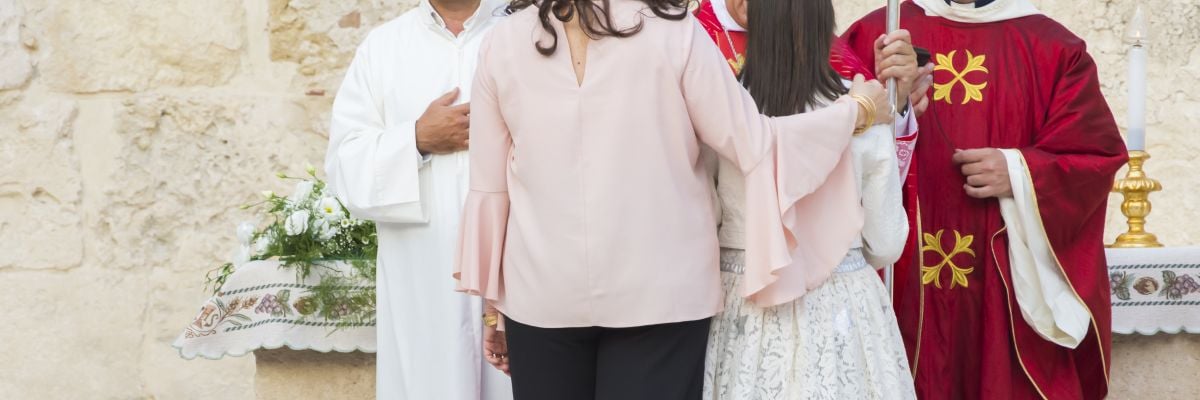
DAY 67
CHALLENGE
“The sacrament of confirmation is an invention of men with no biblical basis.
DEFENSE
The sacrament of confirmation is recorded in Scripture.
The laying on of hands is used in several Christian rites, including healing (Mark 6:5; Acts 28:8) and ordination for ministry (Acts 6:1–6, 13:2–3). It is also used in Christian initiation.
The book of Hebrews lists the laying on of hands among the “elementary doctrines of Christ”—basic things a convert would need instruction on—alongside repentance, faith, baptism, the resurrection of the dead, and eternal judgment (Heb. 6:1–2).
We see it used in Christian initiation in Acts 8, where Philip the evangelist (cf. Acts 6:5, 21:8–9) converts a number of Samaritans. Al- though he baptized them (Acts 8:12), he did not have the ability to lay hands on them. Thus two apostles—Peter and John—came from Jerusalem and prayed “that they might receive the Holy Spirit; for it had not yet fallen on any of them, but they had only been baptized in the name of the Lord Jesus. Then they laid their hands on them and they received the Holy Spirit” (8:15–17).
We see the same in Acts 19, where Paul administers Christian baptism to a group and then lays his hands upon them, which results in the Holy Spirit coming upon them (19:5–6).
The Holy Spirit is associated with and received in baptism (Matt. 3:11; Mark 1:8; Luke 3:16; John 1:33; Acts 2:38; 1 Cor. 12:13), but the passages above show there was also a laying on of hands for further strengthening with the Holy Spirit as part of Christian initiation.
The passages also show this laying on of hands was distinct from baptism and that not all ministers performed it. Philip the evangelist baptized but did not lay on hands, while higher-ranking ministers, such as Peter, John, and Paul, both baptized and laid on hands.
“Very early, the better to signify the gift of the Holy Spirit, an anointing with perfumed oil (chrism) was added to the laying on of hands” (CCC 1289). This rite is today known in the West as confirmation and in the East as chrismation.
Today as then, not all ministers are able to celebrate it. Bishops—the successors of the apostles—are able, as are priests under certain conditions, but other ministers are not.



